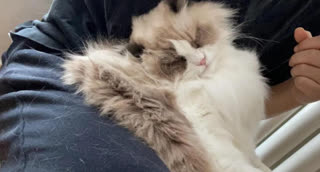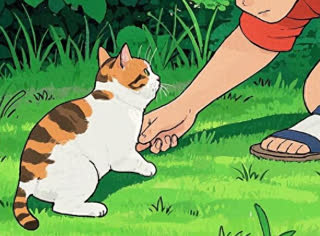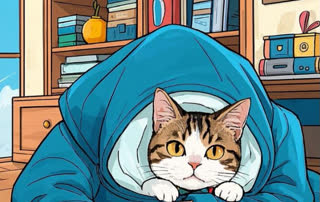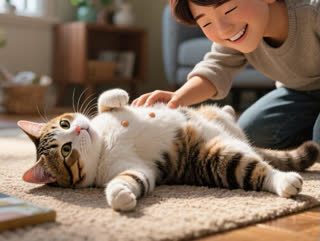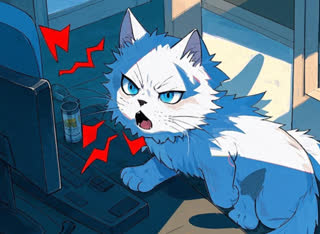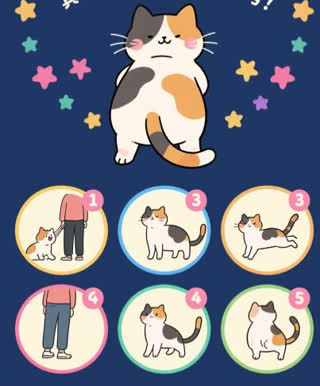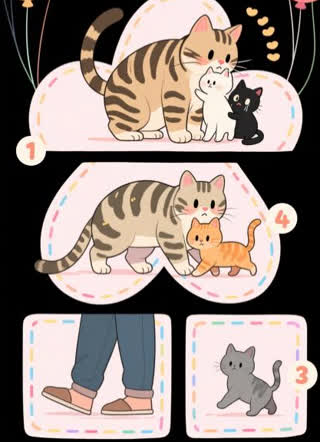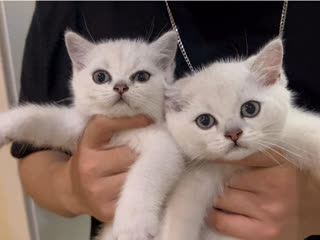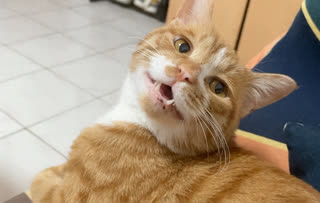Maine Coon cats, known for their majestic size and gentle personalities, face unique health challenges - particularly a predisposition to hypertrophic cardiomyopathy (HCM). This comprehensive Maine Coon cat heart murmur symptoms checklist helps owners detect early signs of cardiac issues in their feline companions. With 30-40% of Maine Coons carrying genetic markers for heart disease according to recent veterinary studies, understanding these warning signs could mean the difference between early intervention and life-threatening complications.
Understanding Cardiac Risks in Maine Coons
While heart murmurs (abnormal heart sounds) affect 15% of all cats, Maine Coons face triple the average risk due to their genetic profile. The breed-specific MYBPC3 gene mutation significantly increases susceptibility to HCM, the most common cause of pathological murmurs. Veterinarians classify murmurs using a six-grade scale:
Grade I: Barely detectable
Grade VI: Audible without a stethoscope
Diagnostic gold standards include:
Echocardiograms (heart ultrasounds)
ProBNP blood tests
Regular auscultation exams
The Maine Coon Cat Heart Murmur Symptoms Checklist
Monitor your gentle giant for these 12 critical indicators:
Panting After Minimal Activity
Unlike dogs, cats rarely pant. Labored breathing after climbing stairs or short play sessions warrants immediate attention.Cold Hind Limbs
Poor circulation may cause rear legs to feel cooler than the front body, particularly in the paw pads.Sudden Weight Fluctuations
Rapid weight gain (fluid retention) or loss (reduced appetite) both signal cardiovascular stress.Gum Color Changes
Healthy gums appear bubblegum pink. Bluish (cyanotic) or pale gums indicate oxygenation issues.Lethargy Patterns
Note if energy drops persist beyond 48 hours or follow a "crash-and-rally" cycle.Open-Mouth Breathing
Particularly concerning if accompanied by a "roaring" sound during inhalation.Coughing While Drinking
Fluid buildup often triggers throat irritation when swallowing.Abdominal Distension
Measure waistline weekly - a "pot-bellied" appearance suggests congestive heart failure.Collapsing Episodes
Sudden loss of consciousness, even if brief, requires emergency care.Head Bobbing at Rest
Subtle rhythmic head movements may indicate irregular blood flow.Reduced Grooming
Matted fur around the hindquarters often accompanies cardiovascular decline.Hidden Pain Signs
Watch for squinted eyes, pinned-back ears, or reluctance to be held.
When to Sound the Alarm
Use this triage guide:
🚨 Emergency Symptoms (Visit ER Immediately):
Purple-tinged tongue
Paralysis in hind legs
Respiratory rate >40 breaths/minute
⚠️ Schedule Within 24 Hours:
Two+ checklist symptoms
Intermittent limp
New food aversions
✅ Routine Monitoring:
Single mild symptom
Genetic predisposition with no signs
Management Strategies for Diagnosed Cats
Modern veterinary care offers multiple management approaches:
Medical Interventions
Beta-blockers: Reduce heart rate (Atenolol)
ACE Inhibitors: Improve blood flow (Benazepril)
Diuretics: Control fluid retention (Furosemide)
Nutritional Support
Low-sodium diets (<0.3% DM basis)
Taurine supplements (250mg daily)
Omega-3 fatty acids (EPA/DHA 50mg/kg)
Environmental Modifications
Install stair-step ramps
Maintain 72-75°F room temperature
Use elevated food/water stations
Owner Action Plan
Download our printable Maine Coon cat heart murmur symptoms checklist [internal link]
Schedule biannual cardiac screenings after age 3
Join the MPI (Maine Coon Cardiac Health Initiative) registry
"Early detection through vigilant symptom tracking gives Maine Coons the best prognosis," emphasizes Dr. Samantha Wells, veterinary cardiologist at Cornell Feline Health Center. "This checklist empowers owners to become active partners in their cat's heart health."

